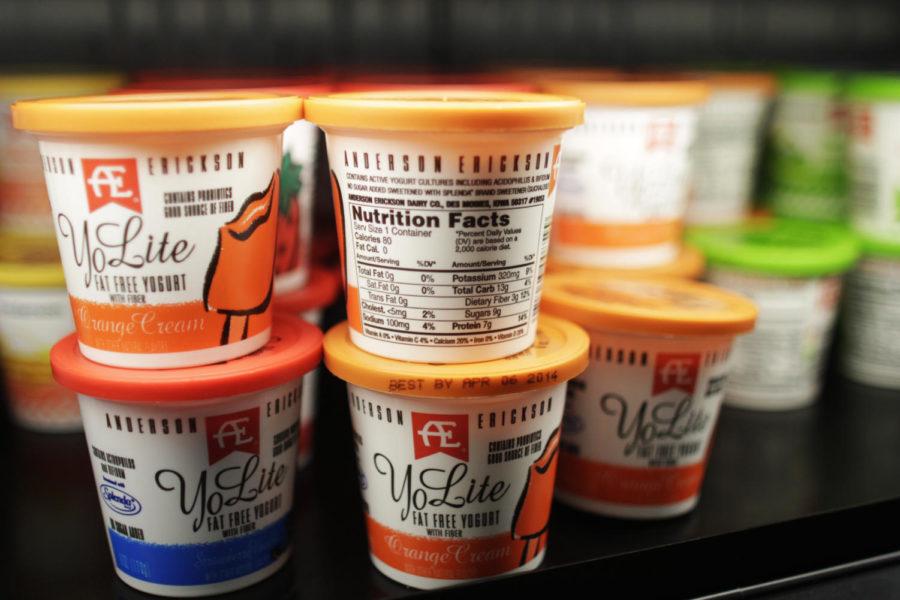Galloway: Fat content misconception
Kelby Wingert/Iowa State Daily
The Food and Drug Administration has proposed changes for nutrition fact labels to help educate the public on healthy eating habits and prevent obesity.
October 10, 2018
Negative thoughts come to mind when we think of the word fat. The connotation of the word “fat” influences our decisions in the supermarket. We see food labels and good feelings are felt when a particular product has “low-fat.” Our brains are wired to avoid whole fat foods — particularly in dairy. Low-fat products will add salt and sugar to replace the taste fat gives the product. This is very unhealthy and the lack of fat in a diet will leave the consumer unsatisfied. Whole fat products tend to leave consumers more content with a smaller portion while sugar and salt are very addictive and they often lead to excessive over-eating.
Salt is the lynchpin to make sure the low-fat food product maintains a good taste.
Kristen Mucci-Mosier, author of Low in Fat, High in Salt and Sugar? said, “The high salt content is there mostly to compensate for taste, but simultaneously, it increases our risk for complications from high blood pressure like heart attack, kidney disease and stroke, as well as risk of asthma, kidney stones, osteoporosis and stomach cancer.”
Low-fat food products are known to taste awful so the producers came up with a remedy, just add a bunch of salt and sugar.
“Similar to salt, sugar is often loaded into low-fat items to enhance taste,” Mucci-Mosier said. “Not to mention, corn is subsidized by the government so high fructose corn syrup, the synthetic sweetener in most boxed foods, is super cheap to come by, making it an alluring ingredient for big companies.”
It’s disappointing to know that so many Americans are being deceived every day.
Low-fat foods are not healthy for you.
Consuming a certain amount of fat is good for us, it sustains us through the daily grind.
“Fat does not make you fat. No, not even dairy fat. For instance, a 2013 review published in the European Journal of Nutrition found that people who eat full-fat dairy tend to be leaner than those who opt for low-fat versions. And in a 2016-released long-term study of 18,438 middle-aged women, consumption of high-fat dairy, but not low-fat dairy, was associated with reduced likelihood of becoming overweight through the years,” according to the European Journal of Nutrition.
Eating a whole fat product is very satisfying and filling and it allows the hunger pangs to subside.
“Fat is an incredibly satiating nutrient, filling you up, slowing down the release of sugars into your bloodstream and helping to prevent overeating,” explains Brian Quebbemann, a bariatric surgeon with the Chapman Medical Center in California and president of The N.E.W. Program.
“By eating the full-fat form of dairy products, you might actually eat fewer calories throughout the day than you would otherwise,” he said.
Low-fat food products are deceptive in making you think that they are the healthier alternative to whole fat foods. However, to make up for this lack of fat, low-fat foods tend to have an excess in salt and sugar. This is more unhealthy than whole fat foods and should be avoided during your next trip to the grocery store.







